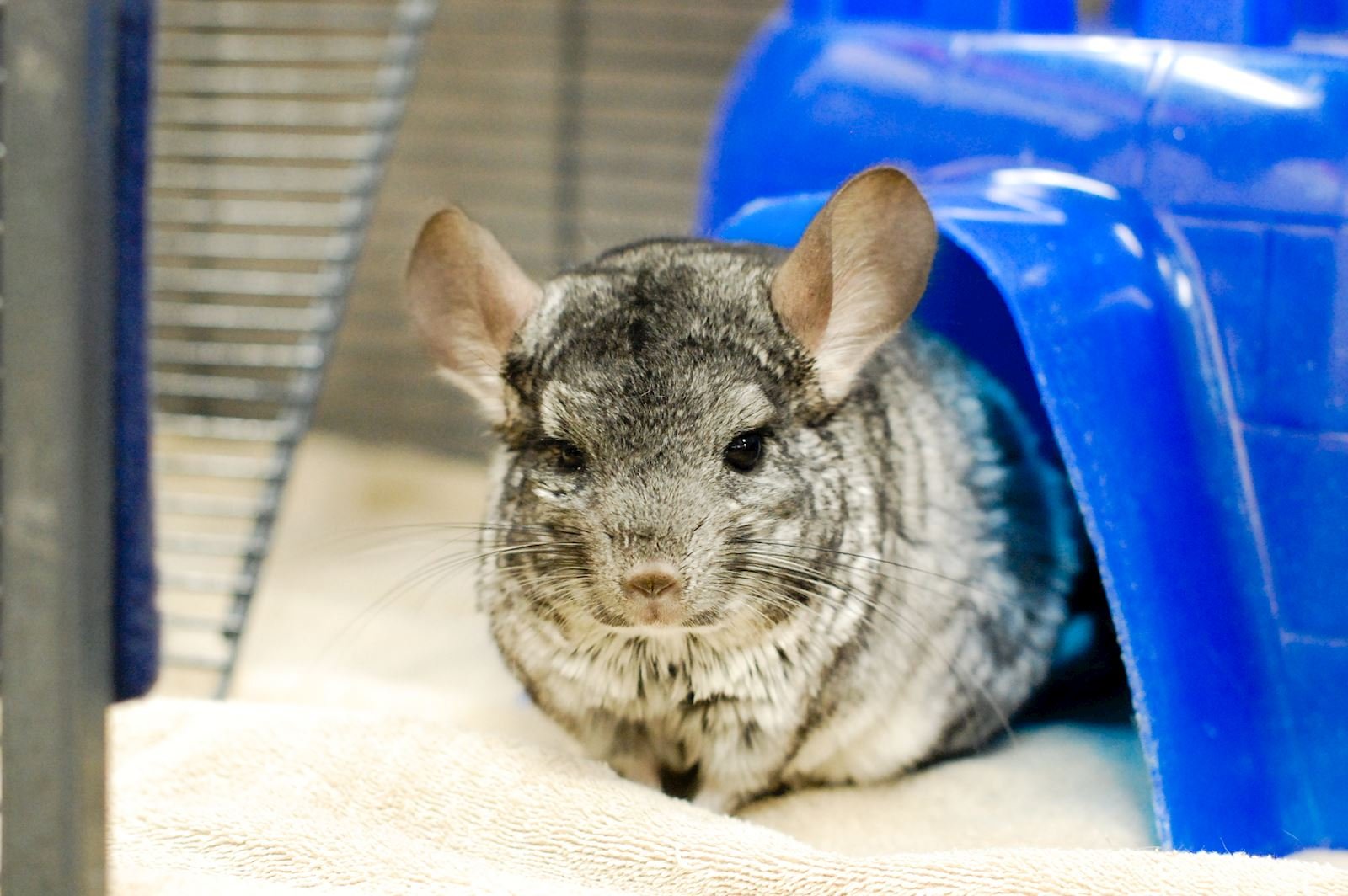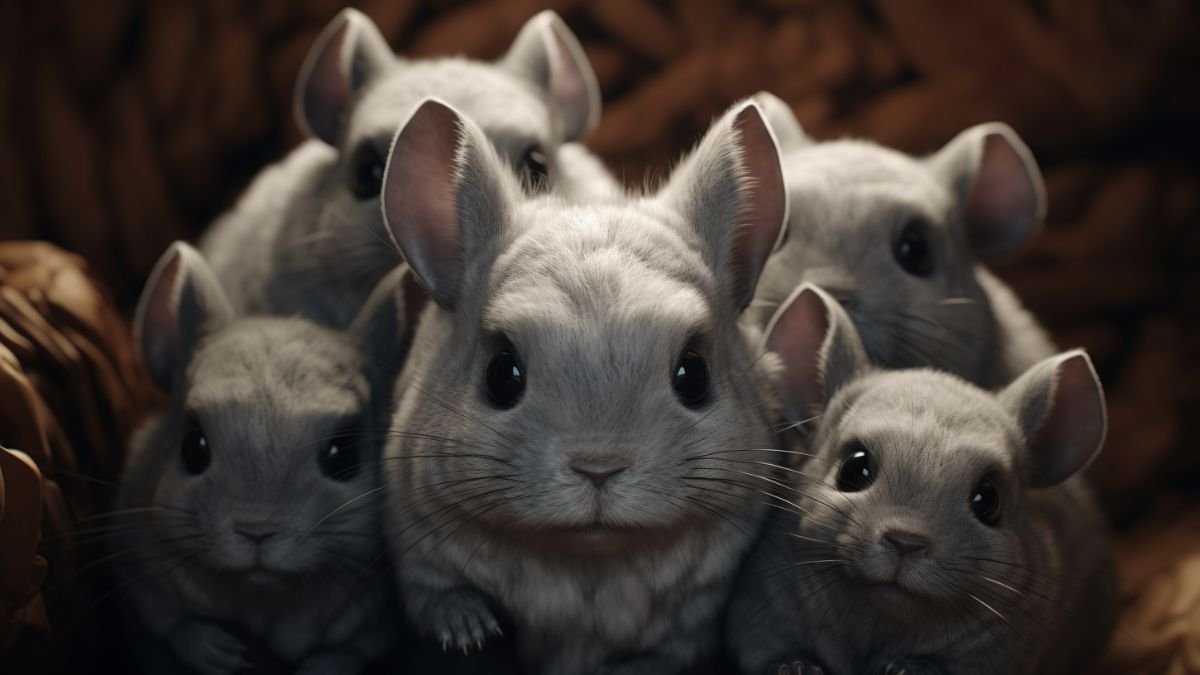
Training your chinchilla can be a fun and rewarding experience, but what happens when your furry friend suddenly starts forgetting what they’ve learned? Regression in chinchilla training can be frustrating, leaving you wondering if all your efforts were in vain.
The good news is, you can prevent this setback and keep your chinchilla on track with the right approach. You’ll discover simple, effective strategies to maintain your chinchilla’s progress and strengthen the bond between you. Keep reading to learn how to make your training sessions consistent, enjoyable, and successful every time.
Common Causes Of Regression
Regression in chinchilla training can be frustrating. Understanding the common causes helps prevent setbacks. Recognizing these factors allows you to keep training progress steady.
Stress And Environment Changes
Chinchillas are sensitive to stress. Loud noises, new pets, or moving can upset them. Stress often causes them to forget learned behaviors. Keep their environment calm and stable to avoid stress.
Small changes can also affect their mood. Avoid sudden changes in cage location or routine. A peaceful setting supports better training results.
Inconsistent Training Methods
Training works best with clear, consistent methods. Using different commands or rewards confuses chinchillas. They may lose trust or fail to learn new skills. Stick to one training style and repeat it often.
Consistency helps chinchillas understand what you expect. Regular practice is key to preventing regression.
Health Issues
Health problems can cause chinchillas to stop responding. Pain or discomfort distracts them from training. Watch for signs like loss of appetite or unusual behavior.
Visit a vet if you notice health issues. A healthy chinchilla is more likely to stay on track with training.
Maintaining Consistency
Maintaining consistency is the key to preventing regression in chinchilla training. Without steady effort, your pet may forget what it learned. Consistency builds clear habits and trust between you and your chinchilla. Small daily actions make a big difference.
Establishing A Routine
Chinchillas thrive with a fixed daily routine. Set specific times for training sessions. Keep sessions short but regular. This helps your chinchilla know what to expect. A steady schedule reduces stress and confusion. Repeat the same activities each day to reinforce learning.
Using Clear Commands
Always use the same words or sounds for commands. Clear commands help your chinchilla understand what you want. Avoid changing phrases or signals often. Speak calmly and with a steady tone. Consistent commands prevent mixed messages and speed up training.
Consistent Rewards
Reward your chinchilla immediately after it performs the correct action. Use the same treats or praise every time. This consistency links the reward to the behavior. Avoid giving rewards randomly or too late. Consistent rewards motivate your pet to keep learning.
Positive Reinforcement Strategies
Positive reinforcement is key to preventing regression in chinchilla training. It helps your chinchilla learn and stay motivated. Rewards encourage good behavior and build trust. Using the right strategies keeps training sessions fun and effective.
Choosing Effective Rewards
Pick rewards your chinchilla loves. Small treats like dried rose hips or plain oats work well. Avoid sugary or fatty snacks. Soft words and gentle petting also encourage good behavior. Change rewards occasionally to keep your chinchilla interested.
Timing And Frequency
Give rewards immediately after good behavior. This helps your chinchilla connect the action and reward. Reward often at first, then slowly reduce treats. Keep training sessions short and frequent. Consistent timing improves learning and prevents confusion.
Avoiding Punishment
Never punish your chinchilla for mistakes. Punishment causes fear and stress. It can harm your bond and slow progress. Focus on rewarding positive actions instead. Patience and kindness lead to better training results.

Credit: epoch.ai
Creating A Safe Training Space
Creating a safe training space is key to preventing regression in chinchilla training. A calm area helps your pet focus better. It also reduces stress and distractions. This space supports consistent learning and trust between you and your chinchilla.
Setting up the right environment makes training easier and more fun for your chinchilla. The space should feel secure and inviting. This encourages your pet to participate actively during training sessions.
Minimizing Distractions
Choose a quiet spot for training. Keep loud noises and sudden movements away. Turn off televisions or radios. Avoid areas with many people or pets. A peaceful setting helps your chinchilla concentrate better. This reduces chances of losing progress.
Ensuring Comfort
Make the space cozy and safe. Use soft bedding or mats for your chinchilla to sit on. Keep the temperature moderate, not too hot or cold. Avoid strong smells or bright lights. Comfort helps your chinchilla relax and learn faster.
Providing Enrichment
Add toys and chew items to the training space. These keep your chinchilla interested and happy. Rotate toys to maintain curiosity. Enrichment prevents boredom, which can cause setbacks in training. A stimulated chinchilla stays motivated to learn.
Monitoring Health And Behavior
Monitoring your chinchilla’s health and behavior plays a key role in preventing training regression. Healthy chinchillas learn better and stay motivated. Changes in their health or mood can affect their training progress. Careful observation helps catch problems early. This keeps training consistent and effective.
Recognizing Signs Of Illness
Watch for changes in eating or drinking habits. Dull fur, sneezing, or unusual smells can signal illness. Lethargy or hiding more than usual may mean your chinchilla feels unwell. Prompt action helps stop health issues from worsening. Healthy chinchillas respond better to training cues.
Regular Vet Checkups
Schedule vet visits at least once a year. Your vet can spot hidden health issues early. These checkups ensure your chinchilla stays fit and active. A healthy pet learns faster and behaves well. Regular exams support long-term training success.
Adjusting Training For Age
Older chinchillas may need slower training sessions. Their energy and memory can change over time. Be patient and adjust your methods. Use shorter sessions and more breaks. Tailoring training to age keeps your chinchilla engaged. This reduces frustration and prevents setbacks.

Credit: cameronrwolfe.substack.com
Adapting Training Techniques
Adapting training techniques is key to prevent regression in chinchilla training. It keeps your pet engaged and helps maintain good behavior. Adjusting your methods to fit your chinchilla’s progress makes training more effective. Consistent but flexible approaches build lasting habits in your chinchilla.
Introducing New Challenges Gradually
Start with simple tasks before moving to harder ones. Small steps help chinchillas stay confident and focused. Sudden changes can confuse them and cause old habits to return. Slowly increase difficulty as your chinchilla masters each step. This careful pacing supports steady improvement.
Tailoring To Individual Needs
Each chinchilla learns differently and at its own speed. Watch your pet’s reactions and adjust techniques accordingly. Some chinchillas respond better to treats, others to gentle voice commands. Personalizing training keeps your chinchilla interested and motivated. This approach reduces frustration for both of you.
Seeking Professional Advice
Trainers and vets offer useful tips for stubborn training problems. They can suggest methods suited to your chinchilla’s personality and health. Professional guidance prevents mistakes that cause training setbacks. Consult experts if regression becomes frequent or hard to manage. Their support improves your training success.

Credit: cameronrwolfe.substack.com
Frequently Asked Questions
How Can I Stop Chinchilla Training Regression?
Consistency is key to prevent training regression. Maintain regular training sessions and positive reinforcement. Avoid sudden changes in routine. Patience and persistence help reinforce learned behaviors effectively over time.
Why Does Chinchilla Training Sometimes Fail?
Training may fail due to inconsistent signals, lack of patience, or improper rewards. Chinchillas need gradual, positive reinforcement. Stress or distractions can also cause setbacks. Understanding their behavior improves training success.
What Are Common Signs Of Chinchilla Training Regression?
Signs include ignoring commands, increased biting, or returning to unwanted habits. Your chinchilla may seem less responsive or anxious. Recognizing these early helps you adjust training methods and regain progress quickly.
How Often Should I Train My Chinchilla?
Daily short sessions of 5-10 minutes work best. Frequent, brief training keeps chinchillas engaged and prevents boredom. Avoid overtraining, which can cause stress and regression. Consistency is more important than duration.
Conclusion
Preventing regression in chinchilla training takes time and patience. Keep training sessions short and fun. Reward good behavior with treats or praise. Stay consistent with rules and routines every day. Watch for signs of stress or boredom in your pet.
Adjust training methods if needed to keep progress steady. Celebrate small wins and stay positive always. This helps your chinchilla learn and stay happy. Training is a journey, not a quick fix. Stick with it, and you will see results.







